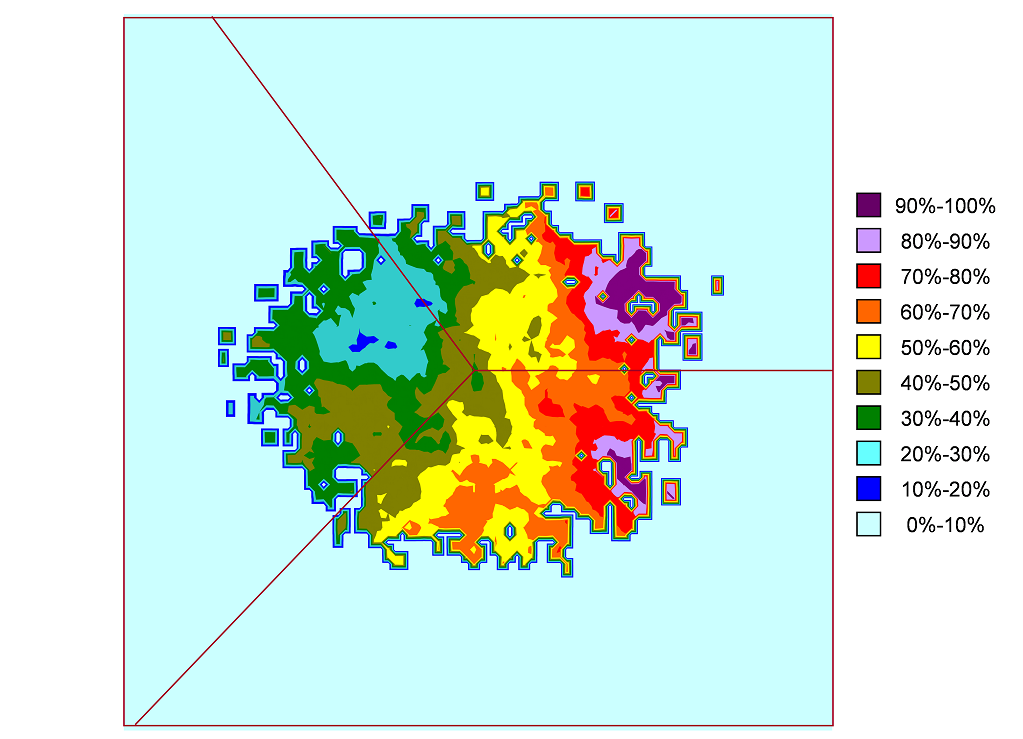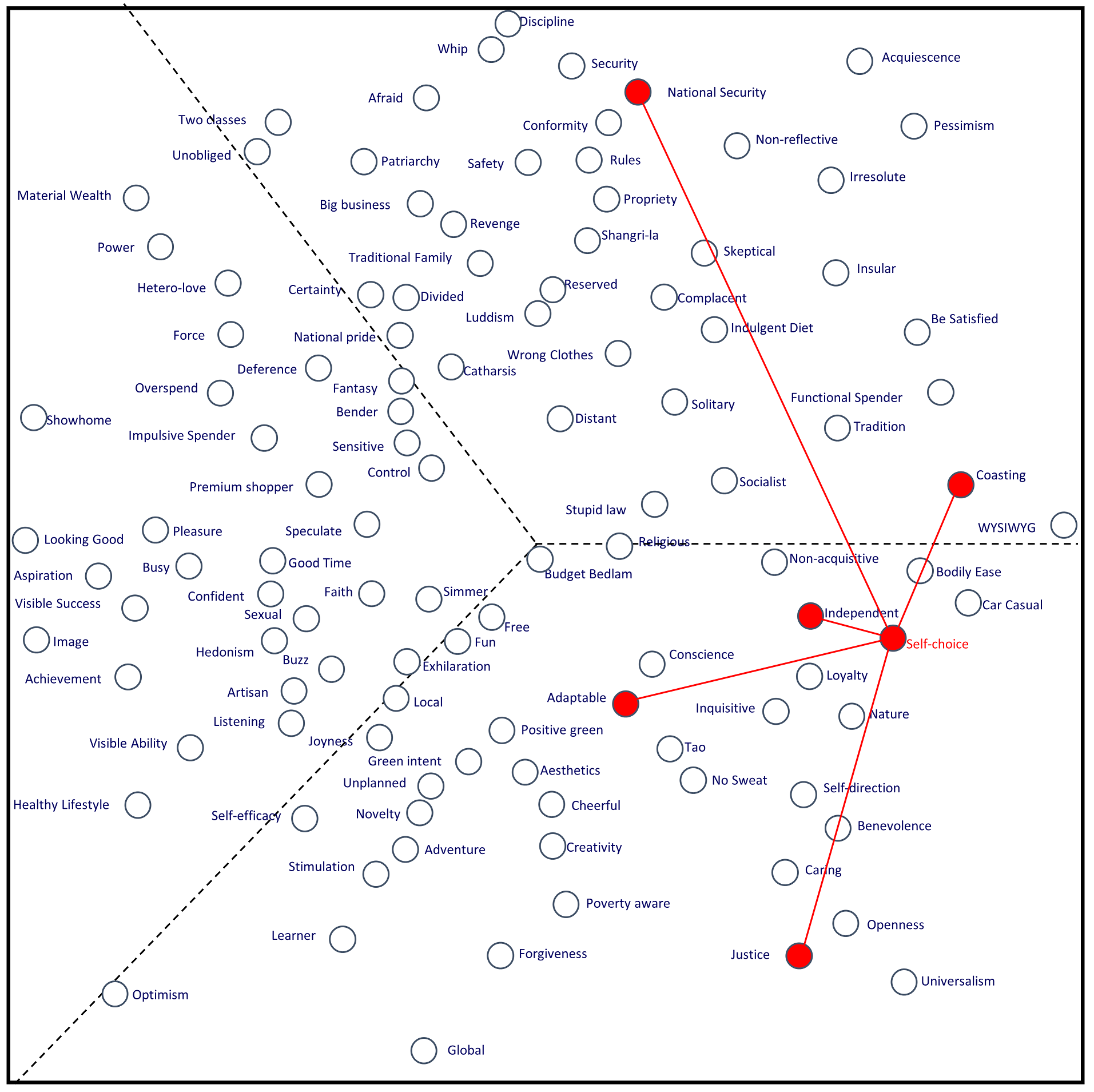

SELF-CHOICE
 |
It is important to me to make my own decisions about what I do.
I like to be free to plan and choose my activities for myself.
Feelings of autonomy and freedom of choice are critical to a sense of wellbeing; however too much choice can start to reduce the benefits. Those who value the Self-choice attribute have the need for the freedom and flexibility to make their own decisions but they also value a society that provides a safe, just and secure world for them to live in.
Self-choice espousers consider it very important for every person to be treated equally and to be protected from a wide range of threats, so their sense of independence operates within the constraints of a well organised and relatively stable society. They emphasise the "freedom from" any potential problems that could arise from social disorder, which, in turn, gives them the confidence and the "freedom to" plan and do whatever they want. Within this secure context, such individuals like to go their own way and do not worry about what other people think of them.
Those who advocate Self-choice demonstrate relatively little conventional ambition - no burning drive "to get to the top". In fact, such people would see the modern notion of being successful as largely illusory. Their personal view of success would be anything that would protect and maintain their sense of freedom to make their own decisions and to choose their activities for themselves.
They are not averse to change, as long as there is no social upheaval along the way. They continue to feel safe as long as everyone is treated equally; even people they do not know. If their sense of social order starts to feel unprotected or compromised, these individuals will question and challenge out-dated laws or obsolete rules that undermine the smooth running of everyday life.
Self-choice espousers are not necessarily looking for certainty and rigid rules. In fact, they are willing and able to transform their own ideas, if they recognise that their worldview is no longer effective and starting to weaken their ability to choose. Those who espouse the Self-choice attribute value freedom within clearly defined boundaries, but recognise that our shared guidelines for society also need to be free to change and evolve � conservation and evolution are compatible, as long as we maintain social order.
In the book, "The Paradox of Choice - Why More Is Less", American psychologist Barry Schwartz argues that eliminating choices can greatly reduce anxiety. He identifies the difference between those who need to know all of the options before making a decision, and those who have personal criteria - perhaps based on security, conscience, parsimony or some combination of them - to reduce the number of options available. This latter type of person is likely to be an advocate of the Self-choice attribute.
Using Self-choiceDemographic Skews: 1) Over-indexed: 45-64. 2) Under-indexed: Under 35. Self-choice espousers also espouse other Attributes. The top five most highly correlated Attributes of Self-choice espousers are, in order of the strength of relationship: 1) Independent In total those who espouse Self-choice also over-index significantly on 34 other Attributes. |
|
If "Self-choice" (or the associated attributes) are important to you and you would like to delve more deeply, contact us at mail@cultdyn.co.uk
